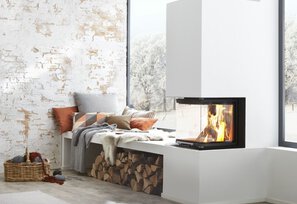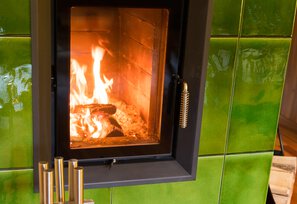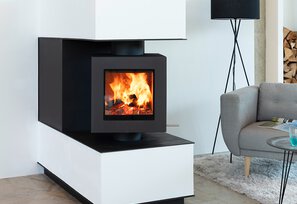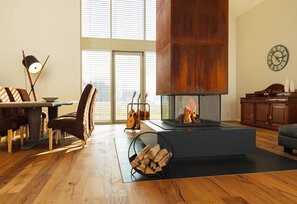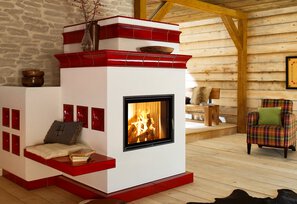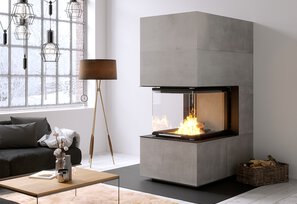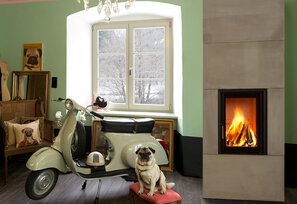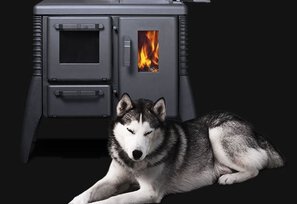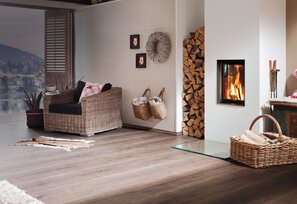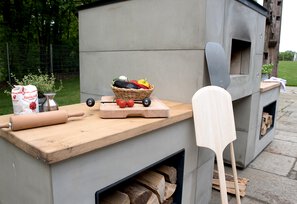Heating more economically with solid fuels
No one wants to be cold at home these days. People prefer to be warm and cosy within their own four walls. However, energy costs have been rising steadily for years and heating is becoming more and more expensive. Heating fireplaces, cast iron, tiled and pellet stoves provide a remedy. And heating with wood is also environment-friendly. Wood is one of the fuels of the future that is not CO2-priced.

Fireplaces as a supplement to central heating
The price of fossil energies is rising, and this also applies to natural gas, which is tied to the oil price trend. Many a home-owner thinks about whether oil is the energy source of the future when filling up his oil tank.
The operation of modern fireplaces can wonderfully support existing heating systems and noticeably reduce the consumption of oil and gas.
Whoever combines fireplace, tiled or pellet stoves with a heat pump can even do without fossil energies altogether.

For the sake of the wallet
The advantages of wood over fossil fuels are manifold:
Compared to the highly fluctuating price of oil, the costs for a solid cubic metre of wood are much more stable and thus calculable.
Wood is regionally available as a domestic, renewable energy source. It does not have to be imported from far away, but is infinitely available. The German Forest Farmers' Association confirms it: In this country, more wood grows back through sustainable forestry than is consumed.
Eco-friendly and CO2 neutral
If you heat your flat or house with wood - whether additionally or exclusively - you also do something good for the environment, because you heat in a climate-neutral way. Why? Because only as much CO2 is released as the tree has stored through its growth and would release back into the environment during natural decomposition. Put simply: wood is stored solar energy. The only condition: The quality of the fuel must be good, only then can the combustion process run cleanly. The wood must be bought from regional stocks, not via trading companies that buy "plunder wood" from Eastern Europe.
More than just warm
Modern fireplaces not only reduce heating oil and natural gas consumption, they also create a special living and room climate. Fire stands for warmth, fire conveys security. The basic human instinct causes us to feel drawn to fire. The atmosphere of the dancing flames of a wood fire is capable of much more than just warming cold feet.

Conclusion
The costs of fossil fuels such as natural gas and heating oil are and remain incalculable and are no longer socially accepted. Supportive heating with solid fuels such as wood or pellets is not only more economical but also more ecological.
You can also support existing heating systems with a modern stove system and thus reduce heating costs. .
